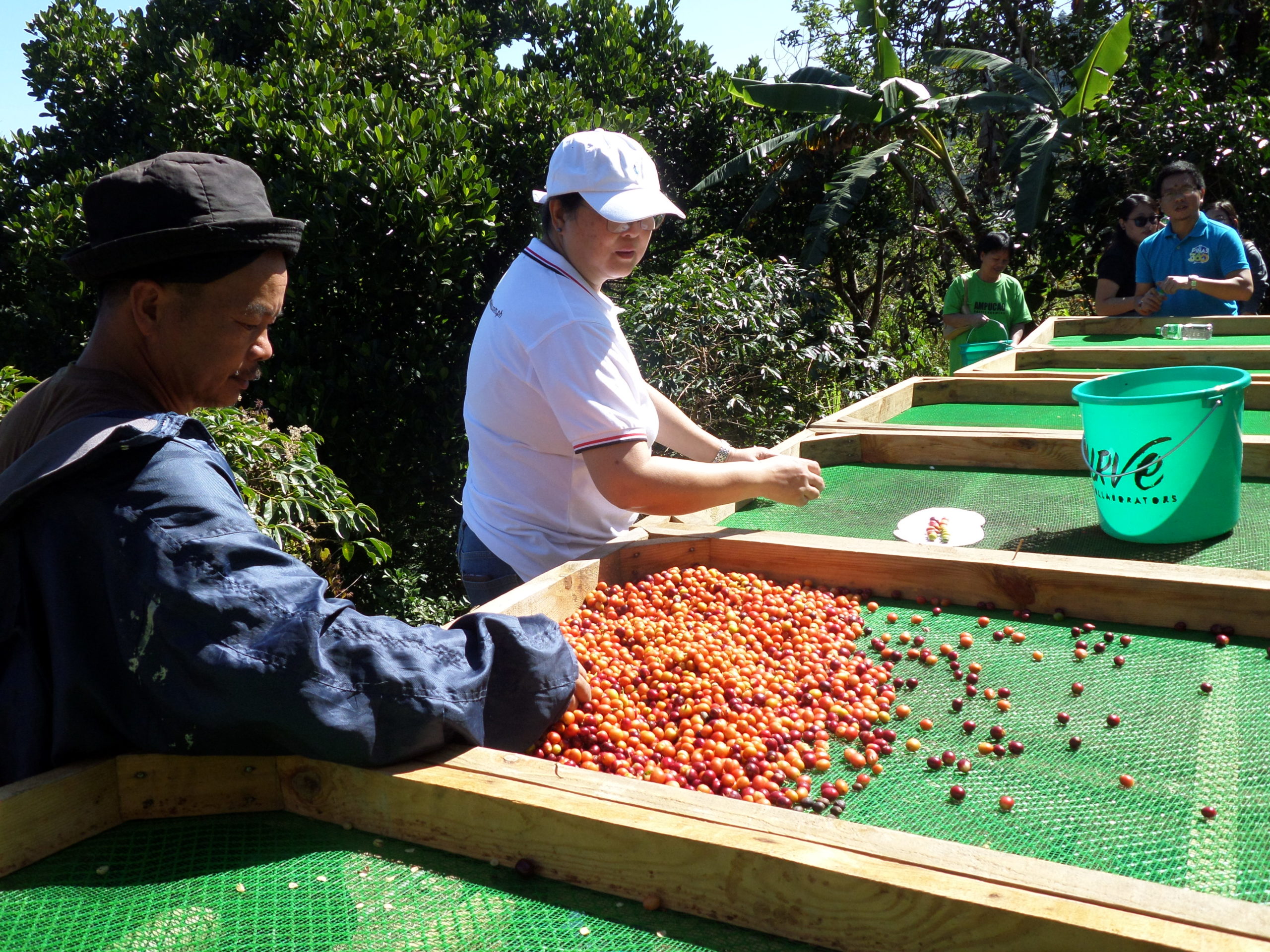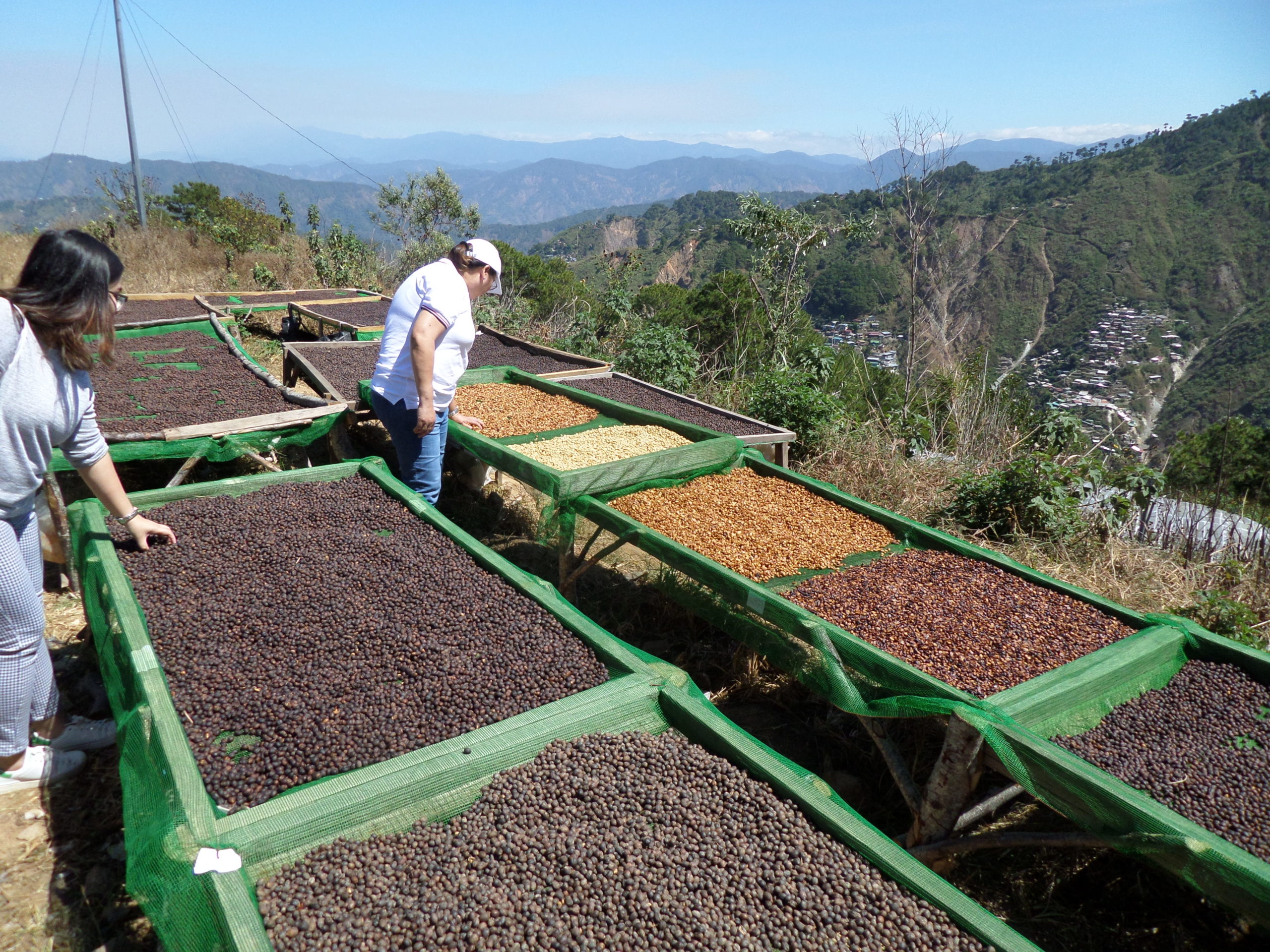Benguet coffee production perks up
For Equilibrium Intertrade Corp., simply buying what coffee is available is not the only—if ever it was—option.
To sustain its reputation and its clients’ loyalty and trust, the company, a leading distributor of top quality products and innovative solutions for coffee and tea and specialty beverages, has taken steps to live up to its promise of delivering the best customer experience while reducing its and its partner producers’ environmental footprint.
Cherry M. Cruz, Equilibrium’s founder and chief executive officer, says, “Aside from buying coffees at better market prices, we support our local farmers by providing free training, farm implements and facilities to help them improve the quality of their harvest.”
She adds, “The [Equilibrium] team continuously partners with local farmers, farming communities, cooperatives and various stakeholders in creating sustainable, dynamic coffee farming, postharvest processes and [in] finding new varieties from the most unexpected sources and origins that will produce specialty and premium Philippine coffees.”
Equilibrium is collaborating with several Benguet farmers, many of whom have been in coffee production for decades, to improve the quality of their beans, teach them simple techniques to get better prices, like picking only ripe fruits and proper sorting.
To coffee production born and bred, Marcos Kilip Bus-oy of Ampucao, Benguet, says, “Our family has been planting coffee for some 100 years.” His farm has some 1,000 new trees but he still maintains the surviving century-old trees.
Coffee is harvested only once a year, between November and February/March, and Bus-oy says he cleans the farm twice or thrice a year. With Equilibrium’s help, Bus-oy now spends the time bet
ning some new skills like farm management, vermi-composting (the propagation of earthworms to make the soil richer) and setting up nurseries.
He is joined in these learning activities by other coffee farmers, including his sister Melissa who is president of the Samuyao Coffee Growers Association. His better quality harvest earns him P200-300 a kilo.
A few kilometers away, Helen Martes operates a facility with machines for sorting, pulping and hulling. Equilibrium provided the equipment that Cruz says are locally designed and manufactured. Coffee growers from nearby farms bring their produce to Martes’ place for the postharvest procedures before Equilibrium collects it for roasting and other processes prior to release into the market.
Martes says her family has been in the coffee business for some 52 years. The mother of seven says, as a result of higher income not only from the planting of beans but also the processing, her children, except for two who are still in school, quit their jobs in mining companies to help their mother.
Cruz says their efforts to help improve farming techniques and postharvest procedures stem from “our desire to work closely with the farmers, which actually reflects our company mission of inclusiveness and empowerment of the individual. Given the opportunity to better themselves, I think our farmers will be able to improve their coffee quality and competitiveness in the global market for specialty coffee.”
The company is collaborating with coffee farmers, growers, and processors from different parts of the Philippines. “These partnerships help communities to flourish and their hard work be recognized beyond their places of origin,” she says.
Equilibrium, she says, is currently working with about 400 farmers under various cooperatives and individual farmer clusters.
“We choose to work with cooperatives, individual farmers and organizations that share the same quality consciousness we have. It is easier to work with those who share the same vision, like-minded individuals,” she adds.
For Equilibrium, improving farm output is a win-win strategy since its is committed to the distribution of top quality coffee.
With the Benguet initiative, Cruz says, “We wanted them (farmers) to learn proper farm management, as well as sustainable and dynamic coffee farming, best harvesting and processing practices … I [also] want to be able to provide better livelihood during the off season and to connect more groups of farmers … Hopefully we can set up our own farms, which would be models for everybody to … learn from.”
She says Equilibrium has “agriculturists and agronomists who relish the idea of finding new varieties from the most unexpected sources and origins. These coffee hunters also assist our partner farmers in implementing the right farming and postharvest processes to help them improve the quality of their produce.”
Cruz says Equilibrium, through Curve Coffee Collaborators, is going beyond the provision of free training, farm implements and facilities.
“Since 2014, Curve Coffee Collaborators has been supporting the educational needs of children of partner farming communities through the Happy Bag Outreach Program,” she says, believing the children are the future of their communities.
She also underscores Equilibrium’s commitment to sustainability. “We embrace highest ethical standards in our business practices and in all actions we take that affect the environment … We support programs that aim to sustain ecosystems, promote recycling and the use of earth-friendly materials in our business operations. We represent brands that share the same values.”
Along this line, Curve Coffee Collaborators unveiled a new compostable packaging for its products. The packaging is made of earth-friendly materials that break down into healthy compost.
“Our team also collaborates with various cafés and clients in recycling used coffee packaging, katcha (muslin), and jute sacks and turning them into handy tote bags to help create livelihood opportunities for seamstresses in Laguna. We are also collecting used Torani glass bottles of our clients, which our team reuse for different purposes to help reduce environmental footprints,” Cruz adds.
The company also works with local brands to source high-quality ecofriendly business supplies like edible straws from rice flour and tapioca, and sproutable calling cards that can be planted after use.
It has partnered with RUNRVR Philippines that has the first ever Filipino clay cup to replace single use cups. “A portion of the proceeds [from the sale of] clay cups will go directly to the rehabilitation of Philippine rivers,” Cruz says.
Aside from its project in Benguet, Equilibrium is also supporting Robusta coffee farmers in Bukidnon. Cruz says Mindanao coffee farms are bigger so there are more bigger stakeholders on the island.
Equilibrium has provided a postharvest processing facility to help Bukidnon farmers and is eyeing other areas in the country that are showing very good promise in terms of the variety of coffee that they produce, like other areas in northern Luzon that grow “a lot of Arabica Heirloom Varieties.”
—CONTRIBUTED


